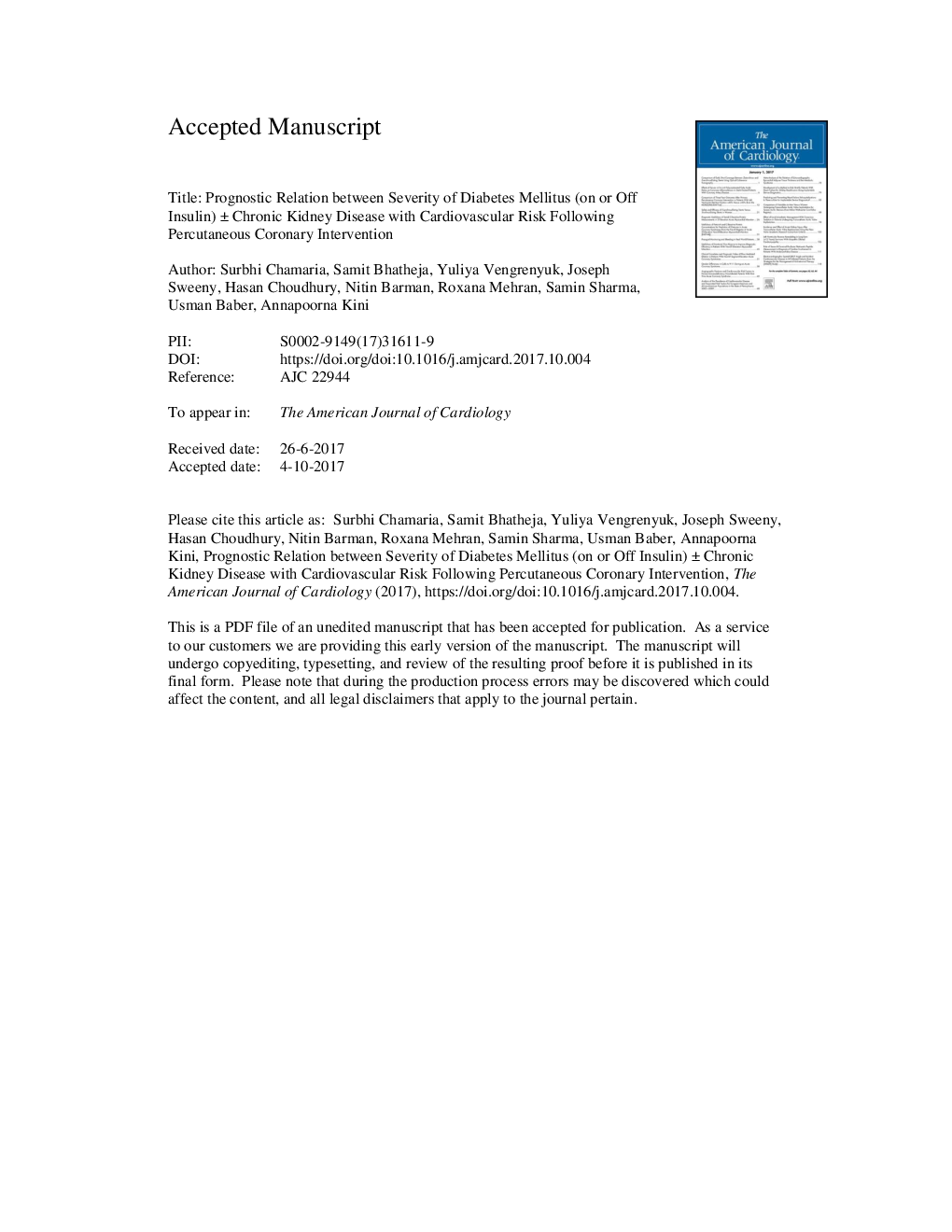| Article ID | Journal | Published Year | Pages | File Type |
|---|---|---|---|---|
| 8651564 | The American Journal of Cardiology | 2018 | 28 Pages |
Abstract
The presence of either diabetes mellitus (DM) or chronic kidney disease (CKD) is associated with a worse prognosis after percutaneous coronary intervention (PCI). It is also known that outcomes in patients treated with insulin (insulin requiring type 2 diabetes mellitus [ITDM]) are worse than those who are not on insulin (non-insulin type 2 diabetes mellitus [NITDM]). We sought to compare long-term outcomes in patients who underwent PCI with varying severity of DM with and without CKD. We retrospectively studied 17,898 patients who underwent PCI from January 2009 to December 2014 in the Mount Sinai Cath Lab. Patients were categorized into groups by the presence or the absence of CKD and by the DM status (none, NITDM, or ITDM). In the absence of CKD, adjusted hazard ratios (95% confidence interval [CI]) for death or myocardial infarction associated with NITDM and ITDM were 1.65 (95% CI 1.02 to 2.67) and 3.78 (95% CI 2.23 to 6.40), respectively. Analogous risks in the presence of CKD were 3.34 (95% CI 1.99 to 5.61) and 6.26 (95% CI 3.84 to 10.2). This study shows that irrespective of renal status, the need for insulin in the setting of DM identifies a group with substantial risk of death or myocardial infarction at 1 year.
Related Topics
Health Sciences
Medicine and Dentistry
Cardiology and Cardiovascular Medicine
Authors
Surbhi MD, Samit MD, Yuliya PhD, Joseph MD, Hasan MD, Nitin MD, Roxana MD, Samin MD, Usman MD, Annapoorna MD,
